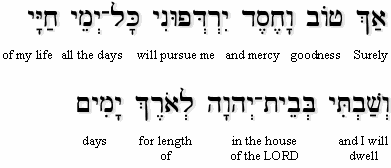

(by Pastor Joe)
The Word for today: Amos 5
Mark this: Amos 5:8
"he who made the Pleiades and Orion, who turns blackness into dawn and darkens day into night..."
I am not much of an astronomer. I have a half broken telescope, and my best accomplishment with it is discovering the moon. In college, to avoid the horrors of biology, chemistry or physics, I took astronomy instead. It was one of the best educational choices I ever made. Class after class we discussed, or better yet watched in the school's planetarium, the wonders of this universe. It gave me a new found appreciation for the vastness of God's power and glory.
In today's reading, the prophet Amos is calling for the Israelites to repent, and demonstrating what that means. He's helping them to "right-size" their concept of who God is. He is not like any of the other gods of the nations, limited by geography; He is the Ruler of all the Earth. Amos goes on to mention two famous constellations to further prove his point: the Pleiades (the 7 sisters, second picture above) and Orion (the hunter, first picture above). Apparently, these two constellations were as popular 2700 years ago as they are today.
These groups of stars are also mentioned twice in the book of Job (1). What is even more amazing than these references is what we know about these stars through modern technology. God's word was pointing us towards these glorious objects long before the telescope, and now the more we learn about them, the more we stand in awe of God's majesty.
Within the Pleiades, the brightest star in that group is named Alcyone (don't ask me how to pronounce it). This star, which is about 370 light-years from earth, nevertheless shines noticeably in the night time sky. Why? Because this star is 2,400 times brighter than our own sun. We cannot even glance at the sun for more than a moment without damaging our eyes, how can we begin to understand the magnitude of this stars luminosity? This reference helps us to begin to understand the magnitude of God's blazing holiness, and how difficult it is for sinful man to even begin to figure it out.
Within Orion, the biggest star in that group is named Betelgeuse (it has nothing to do with beetles or juices or certainly not the movie!). This star makes the shoulder of the constellation, and is about 640 light years from us. It is noticeably red, because it is classified as a red supergiant. Okay, so what's the big deal? The deal is, this star is about 1,000 times bigger than our own sun. It is so big, that if you put it into the center of our own solar system, you and me, the rest of Earth, along with Mercury, Venus, Mars and Jupiter would all be "inside" it. That's pretty big. This reference helps us begin to see just how small we are, and how hard it is to grasp God's infinity.
I find it fascinating that centuries before we could even know it, God gave examples of His power and hugeness that we are just beginning to comprehend. In the midst of this rebuke to Israel (an all of us as well), God reminds us of who He is. So let this little lesson in amateur astronomy remind all of us of Him. The Grand Designer, the Creator, of all we know and see. The One of whom the Bible says in perhaps the greatest understatement of all time: "He made the stars also (2)." Look up to the starry host, and let that help us to bow our knees in wonder of Him.
*****************
(1) Job 9:9 and 38:31
(2) Genesis 1:16











